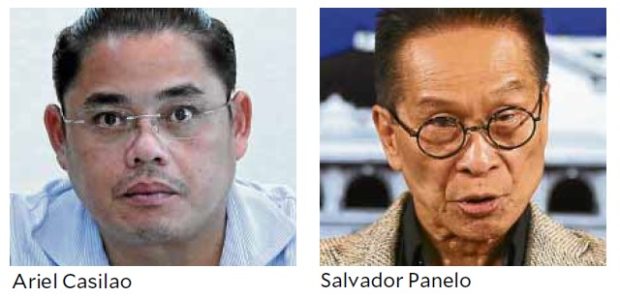
Government officials have argued that martial rule, which gives authorities extra powers, has been effective in taming the region that has been wracked by a Muslim separatist insurgency for decades.
But a day after two explosions rocked the Cathedral of Our Lady of Mount Carmel in Jolo, killing at least 20 people and wounding 78, Anakpawis Rep. Ariel Casilao asked on Monday whether martial law was really working in Mindanao.
Billions for military intel
In a statement, Casilao said billions of pesos in taxpayer money had been poured into the military’s intelligence fund with little effect.
“We appeal to the people not to be swayed [by] the warmongering viewpoint of intensifying military operations under the guise of antiterrorism, that will ultimately trigger mass abuses against the Moro people, and fuel the already intense social unrest in Mindanao,” Casilao said.
Presidential spokesperson Salvador Panelo, however, insisted that martial law in Mindanao remained effective despite the bombings that drew condemnation from Pope Francis and other world leaders.
There must have been lapses in security, Panelo said, referring to the motorcycle parked outside the cathedral in whose utility box the second bomb was reportedly placed.
He said the President was “so angry,” “outraged” and “so disappointed that despite the movement to tread the path toward peace and development, there’s still certain forces in that region who sow terror and kill and murder people.”
Visiting survivors
The President arrived in Jolo at 2:15 p.m. on Monday with Defense Secretary Delfin Lorenzana, Interior Secretary Eduardo Año and Philippine National Police Director General Oscar Albayalde.
The President was also accompanied by his daughter, Davao City Mayor Sara Duterte, and his former special assistant, Christopher “Bong” Go.
The President met with some of the survivors and visited wakes for some of the dead. He left the city at 5:38 p.m.
Sunday’s attack came nearly a week after the nation’s Muslim minority voted to approve a law that would give them greater autonomy in Mindanao.
Magdalo Rep. Gary Alejano said on Monday the timing of the attack showed the perpetrators wanted to disrupt the ratification of the Bangsamoro Organic Law (BOL), which won the plebiscite in the Autonomous Region in Muslim Mindanao (ARMM) and was up for a second vote on Feb. 6 in Lanao del Norte (except in Iligan City) and six towns in Cotabato that may want to become part of a bigger and more powerful Muslim homeland on the island.
Catholic bishops on Monday denounced the “cycle of hate” in the country that led to the attack on the cathedral in Jolo.
“For the past few months now, we have observed how the culture of violence has gradually prevailed in our land. The recent bombing of the cathedral of Jolo where scores of people were killed and several more were injured is further evidence [of] the cycle of hate that is destroying the moral fabric of our country,” Davao Archbishop Romulo Valles, president of the Catholic Bishops’ Conference of the Philippines, said in a statement issued by the group after its 118th plenary assembly in Manila.
‘Cruel words’
“We have also been at the receiving end of cruel words that pierced [the] soul of the Catholic Church like sharp daggers,” the bishops said without mentioning names but clearly referring to President Duterte, who had been badmouthing the Catholic prelates and the Church for criticizing his war on drugs that had taken nearly 5,000 lives.
The attack on the Jolo cathedral, the bishops said, “is very sad, very tragic, almost difficult to imagine that man can do to his … brothers and sisters.”
“[Y]et as believers, as Catholics, we must go back to our faith, look inside our hearts. And how to respond to this evil deed, there is no question about that, with good. Conquer evil with good,” they said.
In a separate statement, Cardinal Luis Antonio Tagle, the archbishop of Manila, urged the perpetrators of Sunday’s attack to seek forgiveness from God and humanity.
“We urge those who planned and executed this brutal act to ask forgiveness of God and humanity, to leave behind their destructive ways and to start a new life of truthfulness, justice and love befitting true human beings,” Tagle said. —REPORTS FROM CHRISTINE O. AVENDAÑO, JULIE M. AURELIO, DJ YAP, TINA G. SANTOS AND AFP